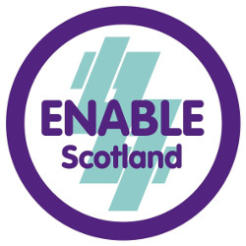A disability charity is in negotiations with trade unions after being accused of paying some carers just £2.50 an hour while on “sleepover shifts”.
The Scottish Sunday Herald reported that Enable Scotland, which has a turnover of just under £30m a year, had been condemned by employees and union Unison for paying £4 less than the hourly minimum wage.
The charity has said that the £2.50 figure is inaccurate as staff are paid a fixed sleepover rate over night, and then paid a much higher hourly rate if the individual is woken.
Enable Scotland provides overnight carers for learning disabled people, and said this rate only applies when the employee is sleeping.
During “sleepover shifts” the charity pays a fixed amount to employees for them to stay the night with service users – and these can often work out at less than minimum wage.
A spokeswoman for Enable Scotland told Civil Society News that this figure only refers to a “very small number” of its 1,400 frontline staff. These employees had been transferred over from another service provider and were on the old terms and conditions.
She said: “What it means are that for the hours of which they are asleep that is the rate of pay for that particular shift, but actually the rate of pay per hour that those members of staff receive is much higher than that – it is more like £7.80 during the hours that they are actually working and not sleeping.”
She called the Sunday Herald’s headline “sensationalist” and went on to say that the charity are actually reviewing those terms and conditions at the moment to bring them in line with its standard rate of pay.
A spokesman for Unison, which is the biggest trade union in the voluntary sector, told Civil Society News that this is a “Scottish national scandal” which it is working with the workforce to solve.
Deborah Dyer, regional organiser for Unison, who was not available to talk this morning, told the Sunday Herald: "While we have been working with Enable Scotland to achieve a living wage for all Enable staff, this has yet to be achieved.
"Unison is currently engaged in negotiations with Enable Scotland on a number of issues including pay.
"We have further meetings scheduled and look forward to positive engagement with the new interim chief executive, Theresa Shearer, to resolve some of the pay concerns being raised by staff."
Representatives of Unison began negotiations with Enable on 9 April, and a second round of talks is scheduled for 23 April.
Unison’s involvement follows a 2013 Employment Appeal Tribunal judgement which ruled that a senior care assistant who carried out sleepover shifts was entitled to receive the national minimum wage for all night shift hours, regardless of whether they were actually working at the time.
Staff at Enable Scotland also told the Sunday Herald that additional payments of £50 for working over the Christmas period were unexpectedly withdrawn, after staff had signed up to do them. Staff were instead offered a box of chocolates or a bottle of sparkling wine for working the holidays.
The charity has since released a full statement. A spokeswoman said: "First of all, the standard hourly rate our frontline staff are paid is £7.80. We are currently engaged in talks with Unison to increase our standard hourly rate by 5p to take it to £7.85. This is the current Living Wage.
"Secondly, the nature of a sleepover rate is that it is a standard payment to individual workers for sleeping in a person’s house overnight. It is not an hourly rate. If the individual is woken, their hourly rate comes into effect.
"We employ 1400 frontline support staff. The sleepover rate of £25.77 relates to less than 1% of our workforce. These are staff members who transferred over to us from another provider when we acquired the service provision. Terms and conditions from their previous employer also transfer in this situation via Tupe. We are working in partnership with Unison to bring this situation to a conclusion as soon as possible."
Tupe rules govern the transfer of staff from one organisation to another.
This story was updated on 13/04/2015 with the charity's full comment. The headline and third paragraph were also amended.









